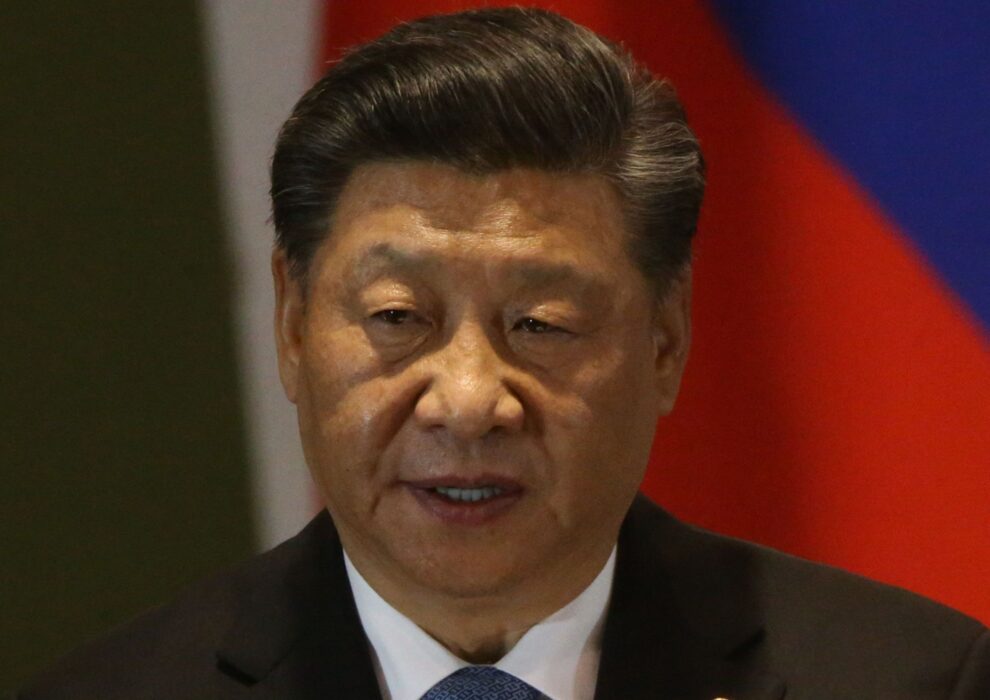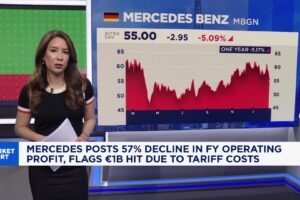
TipRanks
3 High-Yield Dividend Stocks Offering at Least 8%; Analysts Say ‘Buy’
America goes to the polls on Tuesday (well, actually, America has been early voting for a few weeks, now), and while Democrat Joe Biden has a solid lead in the polls, there is some of evidence that President Trump may still win a second term. Finally, with all of the early voting, mass absentee ballots, and possible extended counting deadlines, we might not know on Tuesday night who the winner is.It’s a situation made of uncertainty, and financial markets don’t like that. Which brings us to dividend stocks. Investors want a pad, something to protect their portfolio in case of a market drop, and dividends offer just that. These profit-sharing payments to stockholders provide a steady income stream, that typically stays reliable even in a modest downturn. Wall Street’s analysts have been doing some of the footwork for us, pinpointing dividend-paying stocks that have kept up high yields, at least 8% to be exact. Opening up the TipRanks database, we examine the details behind those payments to find out what else makes these stocks compelling buys.Altria Group, Inc. (MO)We’ll start with Altria Group, the tobacco company best known for its iconic Marlboro cigarettes. Altria, like many of the so-called ‘sin stocks,’ is one of the market’s dividend champions, with a long history of reliable, high-yielding payments. The company has benefited from a psychological quirk of human nature during such a wild year as 2020: People will hunker down if necessary, but they won’t give up their small pleasures.Cigarettes are exactly that, and even though overall smoking rates have been declining in recent years, Altria saw stable financial results in the last few quarters. The first and second quarters both showed $1.09 in earnings, well above the 97 cents expected in Q1 and modest beat against Q2’s $1.06 forecast. Revenues hit $5.06 billion in Q2, in-line with the two previous quarters.Looking ahead, analysts expect Altria to post $1.15 per share in earnings on $5.5 billion in revenues when it reports Q3 results. That report is due out tomorrow morning. Meeting those results will help Altria maintain its dividend – although the company has a long-standing, very public, commitment to do just that. Altria has kept its dividend reliable for the past 12 years, and for the last payment, made it September, the company even slightly raised the payout by 2.4%. The current dividend is 86 cents per common share, or $3.44 annualized, and yields an impressive 8.8%.Looking at Altria in the lead-up to the Q3 report, Deutsche Bank analyst Stephen Powers writes, “[We] are positively biased on company fundamentals as we approach MO’s results next week—reinforced by healthy scanned channel demand intraquarter across MO’s core tobacco businesses, with particular strength in cigarettes driven by the Marlboro brand… we believe continued operational execution in its core business will enable MO to more credibly position itself as a stable core tobacco investment…”Powers rates the stock as a Buy, and his $51 price target implies a 37% upside for the coming year. (To watch Powers’ track record, click here)Overall, Altria has a Moderate Buy rating from the analyst consensus, based on 3 Buys and 2 Holds set in recent weeks. The stock’s current share price is $37.04, and the average price target of $46 suggests a 24% one-year upside. (See MO stock analysis on TipRanks)American Finance Trust (AFIN)Next on our list is a Real Estate Investment Trust, a REIT. These companies are known for their high dividends, a fact resulting from a quirk of tax regulation. REITs are required to return a certain percentage of profits directly to shareholders, and dividends are one of the surest means of compliance. AFIN, which focuses its portfolio on single- and multi-tenant service-retail properties, is typical for its niche.And its niche has been solid. AFIN boasts major companies like Home Depot, Lowe’s, and Dollar General among its top ten tenants, and announced earlier this month that it has collected over 91% of its third quarter rents. Looking ahead to Q3 results next week, EPS is expected at 23 cents, a 15% increase from Q2. The company offers a monthly dividend, at a rate of 7.1 cents per common share, instead of the more common quarterly payments. The monthly format allows some flexibility in managing adjustments to the payout rate; in April, AFIN reduced the dividend from 9 cents to 7.1 as part of efforts to manage the corona crisis effects on business. The current payment annualizes to 85.2 cents per share, and yields a robust 14.7%. This is more than 7x higher than the average dividend yield found among S&P 500 companies.B. Riley analyst Bryan Maher notes the difficulties that AFIN has faced, as a property owner and manager during an economic downturn, but is confident in the company’s ability to meet the challenges.“Like most REIT’s, AFIN has been impacted by the COVID-19 pandemic, which is not surprising given its portfolio has a large number of service retail assets. However, 71% of the portfolio is necessity-focused retail, with the balance being distribution and office properties. As such, AFIN collected 84% of cash rents due in 2Q20, including 96% of the cash rent due from its top 20 tenants. Cash rent collection for July improved to 88%. AFIN has been proactive in working with certain tenants to negotiate rent deferrals/credits…” Maher noted. To this end, Maher rates AFIN stock a Buy, and gives it a $10 price target. At current trading levels, this implies a strong one-year upside potential of 76%. (To watch Maher’s track record, click here)AFIN is priced at $5.69, and its average target matches Maher’s, at $10. The stock has a Moderate Buy from the analyst consensus, based on an even split between Buy and Hold reviews. (See AFIN stock analysis on TipRanks)Golub Capital BDC (GBDC)Last but not least is Golub Capital, a business development company and asset manager. Golub works with middle market companies, providing solutions for financing and lending. The company boasts a market cap of $2.2 billion, as well as over $30 billion in capital under management.In the months since the corona virus crisis hit the economy, Golub has seen a depressed share price and high volatility in its earnings. The stock is down 28% year-to-date. Earnings, which collapsed in 4Q19, have been bouncing in 2020. The first quarter showed 33 cent per share, while the Q2 figure came in at 28 cents. Looking ahead, the forecast expects a repeat of the second quarter EPS figure, 28 cents. Revenues have been just as volatile; the first quarter saw a deep net loss, but Q2 saw the top line bounce back to $145 million. This was the highest quarterly revenue figure in the past year.Golub believes in keeping up the dividend for investors, offering not only a reliable regular payment but also periodic special dividends. The company adjusted the payment earlier this year, both to keep it affordable during the coronavirus crisis and to keep the yield from getting too high. The result was a 12% cut, making the current payment 29 cents per common share quarterly. This still gives a high yield of 9.16%, which compares well to the 2.5% average found among finance sector peers.Finian O’Shea, from Well Fargo, notes that Golub has recently announced a $2 billion unsecured debt issue, a move that gives the company plenty of liquidity in a difficult time. He writes, “GBDC isn’t paying a hefty premium for unsecureds to begin with… We think the improved flexibility and longer tenor of unsecureds make them an attractive addition to the right side of the balance sheet, and see it as a vote of confidence in GBDC’s underlying portfolio.”O’Shea reiterates his Overweight (i.e. Buy) rating on this stock. His price target, at $13.50, indicates room for a modest 6% upside. (To watch O’Shea’s track record, click here)Like AFIN above, Golub Capital has a Moderate Buy consensus rating, with 1 each Buy and Hold reviews. The stock’s average price target matches O’Shea’s, at $13.50. (See Golub’s stock analysis at TipRanks)To find good ideas for dividend stocks trading at attractive valuations, visit TipRanks’ Best Stocks to Buy, a newly launched tool that unites all of TipRanks’ equity insights.Disclaimer: The opinions expressed in this article are solely those of the featured analysts. The content is intended to be used for informational purposes only. It is very important to do your own analysis before making any investment.










